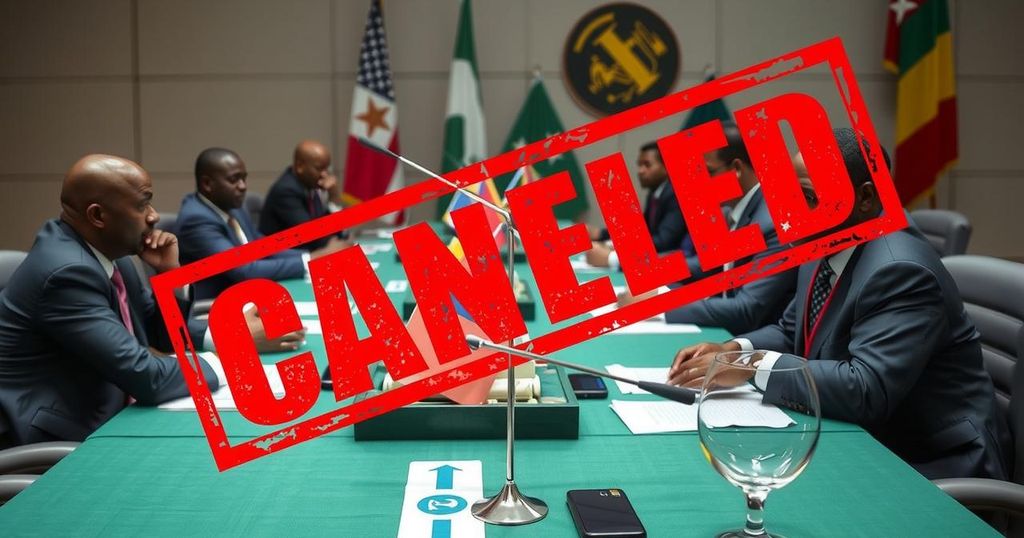Cancellation of Peace Summit Highlights Tensions in Eastern DRC

A peace summit in Angola to discuss the conflict in eastern DRC was cancelled due to Rwanda’s delegation’s refusal to participate. The meeting was part of the Luanda Process aimed at stabilizing the region amidst escalating tensions from the M23 rebel group. Despite the summit’s cancellation, there remains a push for dialogue between the DRC and the M23.
The planned peace summit aimed at addressing ongoing conflicts in the eastern Democratic Republic of the Congo (DRC) has been cancelled. Angolan President Joao Lourenco was set to host DRC President Felix Tshisekedi and Rwandan President Paul Kagame to mitigate tensions in the region. However, the Rwandan delegation declined to participate, prompting the summit’s cancellation.
The eastern DRC has been marred by instability largely due to the activities of the M23 rebel group, which has made significant territorial gains. The DRC government accuses Rwanda of backing the M23, a claim that Kigali refutes. This situation highlights the complex geopolitical dynamics in the region, where historical grievances and ongoing hostilities complicate peace efforts. The Luanda Process, initiated in 2022 and supported by the African Union, aims to foster stabilization in the area and seeks to facilitate dialogue between conflicting parties.
In summary, the cancellation of the peace summit underscores the ongoing difficulties in resolving tensions in eastern DRC, primarily fueled by the M23 conflict and accusations of foreign intervention. The DRC’s pursuit of peace through the Luanda Process remains critical, yet the lack of consensus among involved parties hinders progress. Continued efforts will be essential to establish dialogue between the DRC and M23 for the eventual restoration of stability in the region.
Original Source: www.chinadailyasia.com








